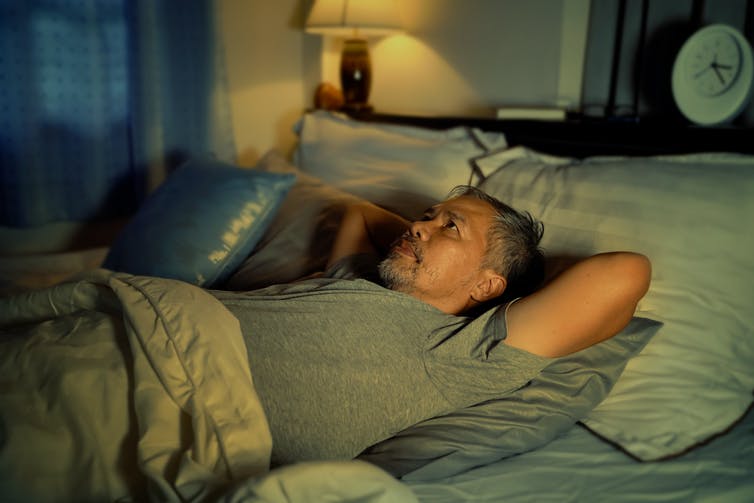
Imagine you have an interview for a new job tomorrow. Some people might think about what kind of questions they will be asked so that they can prepare, or imagine the interview going well. For others, the thought of an interview will cause them to toss and turn all night thinking of every worst case scenario possible – no matter how outlandish these may be. If you’re someone who has a tendency to do the latter, you are prone to catastrophising.
Catastrophising is a tendency to assume the worst will happen when imagining a future situation – even if you have evidence that this is not the most likely outcome. People who like to feel in control (and are therefore intolerant of uncertainty) are more likely to catastrophise. This has been linked to anxiety – suggesting that frequent catastrophising may be a factor in developing certain mental health problems.
Catastrophising comes from the belief that by imagining what might go wrong, we’re better able to protect ourselves from harm – both physical and mental. However, this tendency is only helpful if you’re able to correctly predict what will happen in a certain situation and how it will make you feel.
As we imagine future events, we experience an emotional reaction to the story we are creating – and we use this response to determine how we will feel in the future. But this way of predicting the future is often wrong since we’re not able to imagine everything that might happen. This can lead to us creating the wrong emotional response for future situations in our heads.
But our belief in what will happen in the future can have a big influence on our behaviour. For example, people who are optimistic (or even realistic) about the future are more likely to be willing to try new things. They are also likely to notice what has gone well in new situations. On the flip side, people who catastrophise about what might go wrong are less likely to try new things. And, when they do try something new, they are more likely to notice what has gone wrong. This will be stored in their memory and will add to the reasons why they we shouldn’t try new things in the future. As a result, catastrophising can lead to undue stress and anxiety and may stop you from doing the things you might enjoy or learn from.
If you’re someone who tends to catastrophise when stressed or anxious, there are a few things that you can do to help:
1. Make decisions in the morning
We often worry about the future at night. When we are asleep, activity in the rational part of our brain is reduced and activity in the more emotional part of our brain is increased. As a result, we tend to use our emotional brain to picture the future when we’re awake at night. Lack of sleep can also make us more sensitive to things we see as threatening. This can lead us to focus more on what might go wrong, and makes us more prone to catastrophising.

Nong2/ Shutterstock
It can be helpful to remind yourself that you are not thinking rationally when you’re lying awake worrying about something. It can also be useful to wait until the morning to make decisions when your brain is rested.
2. Teach your inner critic to be more compassionate
Catastrophising can be driven by our inner critic, which may use harsh language that makes us emotional.
When this happens, try imagining your inner critic as if you were looking through someone else’s eyes. What language do you use and would you use this language when talking about someone else in a similar situation? Is the language your inner critic uses helpful or justified? Often the answers to these questions will be no. Be conscious of the language your inner critic is using when you’re worried or stressed. If it’s overly harsh, try to switch to a kinder way of speaking to yourself.
3. Make up a better story
Even if things have gone wrong in the past, this is unlikely to be the case in the future – despite what we might tell ourselves. If you have a tendency to catastrophise about future events, try to think instead about ways in which this event might go well, which may help you to feel less anxious.
Another strategy is to make up, not just one, but a number of plausible stories about what might happen. This may help to remind you that the stories you’re telling yourself are just that – stories. Choosing to focus on the stories with a positive outcome might also help you to feel less worried or stressed.
4. Be kind to yourself
Try to be more compassionate with yourself when considering your future. This is more difficult than you might imagine – even for people who are very compassionate and empathetic to others.
Compassion and empathy evolved to help us to interact well with others. As such, compassion and empathy aren’t really designed to be used for yourself. But small things – such as asking what advice you might give a friend in your situation – can help you to get in touch with your compassionate voice. Practising this often may even help you to see solutions where you might otherwise have only focused on the problem.
Planning for ways in which things might go wrong in the future does serve a purpose – and that is to keep us safe. But if you often find that you castrophise by thinking of all the worst case scenarios – especially to the detriment of your own mental health – it can be important to remind yourself that the things you’re worrying about may never happen, and, if they do, they will probably turn out much better than you think.
![]()
Patricia Riddell is the founder of, and consultant neuroscientist for, PMR consultants.
























